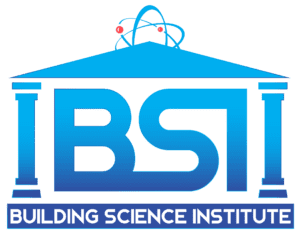Prior to credentialing, candidates must successfully complete the following training programs:
- ICC-approved Plans Examiner/Energy Code Inspector (8 hours)
- ANSI/RESNET/ICC 301-2019 training by Building Science Education (50 hours)
- ANSI/RESNET/ICC 380-2019 training by Building Science Education (10 hours)
- ANSI/RESNET/ACCA 310-2020 training by Building Science Education (6 hours)
- ANSI/ACCA 12-2018 training by Building Science Education (6 hours)
- Energy Modeler training by Building Science Education (7 hours)
- HouseRater training by Building Science Education (2 hours)
Energy Code Compliance Specialist Required Assessments
- ICC-proctored Plans Examiner/Energy Code Inspector exam
- 10 energy models in HouseRater (plans & specs provided by Building Science Education), evaluated by Quality Assessor or Quality Assessment Designee credentialed by the Building Science Institute
- 2 single story
- 2 2-story
- 2 duplexes
- 2 townhouses
- 2 apartment units
- 5 pre-drywall/insulation verifications mentored by Quality Assessor or Quality Assessment Designee credentialed by the Building Science Institute
- 5 final verifications mentored by Quality Assessor or Quality Assessment Designee credentialed by the Building Science Institute


